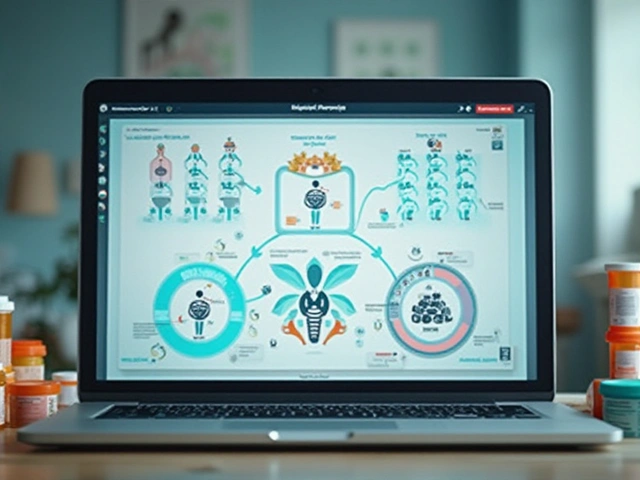Methyldopa safety
Methyldopa is an older blood pressure medicine still used today, especially in pregnancy. If your clinician suggested it, you probably want to know what to expect and how to stay safe. Below I’ll cover who commonly uses it, the side effects to watch for, simple monitoring steps, and quick tips to avoid problems.
Who it’s for and how it’s used
Methyldopa is mainly used for chronic high blood pressure and is often chosen in pregnancy because it has a long safety record for the fetus compared with ACE inhibitors and ARBs. Doctors usually start low — for example 250 mg two or three times daily — and adjust the dose based on blood pressure. Typical maximum daily doses can go up to about 2–3 grams, but your provider will pick a dose that suits you.
What to watch for and practical safety steps
Side effects are common but usually manageable. The most frequent ones are drowsiness, weakness, dry mouth, and dizziness — especially when standing up (orthostatic hypotension). That means be careful getting out of bed or standing quickly for the first few days or after a dose change.
There are some less common but serious issues to know about: methyldopa can cause changes in liver enzymes (hepatitis) and in rare cases liver injury. It can also trigger hemolytic anemia (your immune system destroying red blood cells) — this shows up as unusual tiredness, pale skin, dark urine, or unexplained bruising. Methyldopa may raise prolactin, which can cause breast milk production or menstrual changes, and can worsen depression in some people.
Before you start, ask for baseline tests: a liver panel (LFTs) and a complete blood count (CBC). Repeat these tests within a few weeks and again periodically if you stay on the drug. If you notice yellowing skin/eyes, very dark urine, new or worsening fatigue, shortness of breath, or mood changes, call your clinician right away.
Interactions are mostly about added blood pressure drop and extra drowsiness. Combining methyldopa with other blood pressure meds, nitrates, or alcohol can make you faint. Taking sedatives, sleeping pills, or heavy drinking makes drowsiness worse. Always tell your provider about all medicines, including over-the-counter and herbal products.
Don’t stop methyldopa suddenly. Stopping abruptly can cause a rebound rise in blood pressure. If you and your clinician decide to stop it, you’ll usually taper the dose down over days to weeks.
Pregnancy and breastfeeding: Methyldopa has been used for decades in pregnancy and is considered one of the safer options. It does pass into breast milk in small amounts, so discuss breastfeeding with your clinician to weigh benefits and risks.
Quick checklist: baseline LFT and CBC, watch for dizziness and mood changes, avoid mixing with alcohol or sedatives, don’t stop suddenly, and contact your clinician if you see jaundice, dark urine, severe fatigue, or new depression. If anything feels off, ask — better safe than sorry.
16
Buy Methyldopa Online Safely: Trusted Pharmacies, Tips, and Advice
Learn how to buy Methyldopa online securely. Get tips on spotting real online pharmacies, what you need for a prescription, legal considerations, prices, and safety tips.
Latest Posts
Popular Posts
-
 OTC Heartburn Medications: Antacids, H2 Blockers & PPIs Explained
OTC Heartburn Medications: Antacids, H2 Blockers & PPIs Explained
-
 Extended Use Dates: How the FDA Extends Drug Expiration Dates During Shortages
Extended Use Dates: How the FDA Extends Drug Expiration Dates During Shortages
-
 Celiac Disease: Gluten-Free Living and Nutrient Supplementation
Celiac Disease: Gluten-Free Living and Nutrient Supplementation
-
 Meniere’s Diet: How Sodium Restriction and Fluid Balance Reduce Vertigo and Hearing Loss
Meniere’s Diet: How Sodium Restriction and Fluid Balance Reduce Vertigo and Hearing Loss
-
 Enteral Feeding Tube Medication Safety: Compatibility and Flushing Protocols Explained
Enteral Feeding Tube Medication Safety: Compatibility and Flushing Protocols Explained



